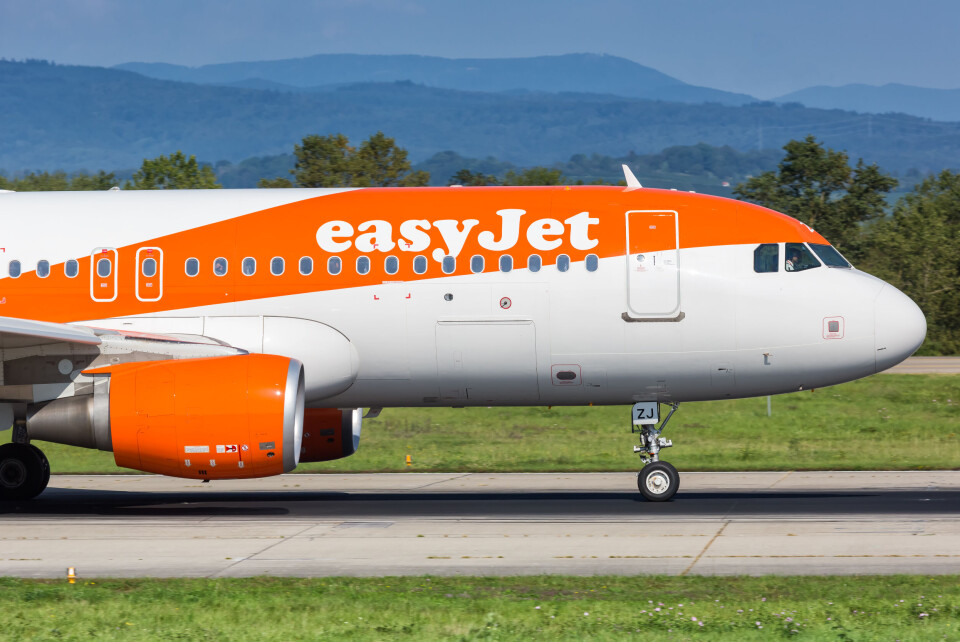-
Pistes closed, confinement orders: Alpine resorts deal with avalanche risk
Increased snowfall this weekend may cause further closures as busy school holiday season continues
-
Former French Interior Minister announces 2027 presidential candidacy
Bruno Retailleau recently asked prefectures to be tough on immigration
-
Ryanair axes Dublin-Rodez route but London connection retained
“We are disappointed but had no say in decision” say airport authorities
Air France raises prices: Will Ryanair and EasyJet follow?
As traditional airlines increase ticket prices to account for soaring fuel costs, low-cost carriers have so far declined to do the same

Air France has increased prices on its long-haul journeys by an average of 7-8%, it has revealed, due to the rising cost of fuel.
A return flight from Paris-Pointe-à-Pitre in Guadeloupe now costs €40 extra on top of the original price of €447; a return from Paris-Saint-Denis de La Réunion with Air Austral (a partner airline to Air France) now costs €30 extra.
In a statement, the airline said: “In response to the rise in fuel prices and other external costs, Air France is increasing all its long-haul fares.”
The French carrier is not the only airline raising prices; Emirates and Japan Airlines have also announced similar measures, while Delta Airlines has said that it plans to add €15-€20 to a €200 ticket.
Fuel makes up around 25% of airlines’ costs, depending on the length of the flight.
The International Air Transport Association (IATA), which represents 190 companies, has calculated that if a barrel of oil costs $115 (€105) on average for 2022, this will add $86.3billion (€78.6billion) to the transport industry.
Read more:Conflict in Ukraine: Petrol prices hit record highs in France
While major airline companies tend to have fuel stocks built up to protect them from fluctuations in the price of kerosene (Lufthansa has enough stock [to cover] 65% of their [scheduled] flights this year and Air France-KLM 50%), this is unlikely to be enough to cover rising costs completely.
A spokesperson for Air France-KLM said: “We have increased ticket prices since March 17, 2022, on long-haul flights, to reflect the rise in fuel prices. The amount varies depending on the destination and the travel offer."
As this comes after the losses seen during the health crisis, airlines will very likely need to pass some of the extra cost to their customers. This is the opposite of what industry experts were advising earlier in the year before Russia’s invasion of Ukraine with airlines having planned to reduce ticket prices to entice passengers back after Covid.
Pascal de Izaguirre, CEO of Corsair, which mainly serves the Antilles and Indian Ocean, told Le Figaro: “When I started my fiscal calculations in October, I had budgeted $630 per tonne of kerosene. On Monday, it was $1,218. It is unthinkable that we won’t need to get back a bit of this rise in the price of tickets.”
However, he said that price rises have been modest so far, to avoid scaring customers away. He said: “That’s why we have increased our prices by 7-8%, despite our costs having risen by 20%.”
Marc Rochet, director of Air Caraïbes, has said that if the cost per barrel of oil does not drop below $100, price rises could reach as high as 16% or more.
Read more:French airline passengers face 20% rise in fares due to fuel costs
How much of an airline ticket cost is for fuel?
Xavier Tytelman, director at aeronautical consultancy Starburst France, told Le Figaro: “[Fuel costs] make up 35% of a low-cost airline company ticket and 18% for a traditional non-low cost business.
“This gap is caused by a large number of expenses that are larger on the side of the traditional airlines, such as marketing costs, after-sales service or food on board, which are also integrated into the ticket price.”
Will short-haul carriers follow suit?
So far, low-cost companies have decided not to raise prices, even as their fuel costs also rise. Ryanair has already said that it will not apply a fuel surcharge this summer.
Mr Tytleman said: “Low-cost carriers are playing this game to capture parts of the market. They can manage it because they are in better financial health than the long-haul companies.”
This is largely because they suffered less in the pandemic, and their medium-haul and short-haul customers have returned.
Ryanair, EasyJet, and Wizzair are among those who may be hoping that Air France, Lufthansa and British Airways may also be forced to raise their prices on short-haul flights (under five hours), so they can swoop in to capture that market.
However, Air France has so far said that it has no plans to raise ticket prices on short-haul just yet.
Related articles
























